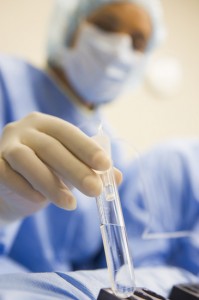 Miranda, a 29-year-old mother of two has just had her eggs frozen and stored. The decision was not by chance but by choice, she told Good Health Weekly last week at her Lagos home.
Miranda, a 29-year-old mother of two has just had her eggs frozen and stored. The decision was not by chance but by choice, she told Good Health Weekly last week at her Lagos home.
Miranda is one of the fast growing group of Nigerian women who opt for egg freezing and storage for the pupose of bearing children in future. The decision to take this revolutionary step was borne out of necessity.
She was diagnosed with cervical cancer last year and hopes to continue to bear children from the frozen eggs as soon as she completes the series of radiotherapy and chemotherapy treatment.
Biologically, a woman’s fertility declines in her 30s. Thanks to egg freezing, the ticking biological clock can be quietened.
The origins of egg freezing in fertility treatment go back to the late 60s, with experiments on mice.
The first successful pregnancy from a frozen egg occurred in 1986, in Australia. But while the procedure was developed by doctors to help cancer patients and women at risk of an early menopause, however, fertility experts believe that more and more women flocking to fertility clinics in Nigeria may be doing so more for medically advised reasons than for social reasons. Read full article.
